Ever tried revenge honey? It tastes good
- Published
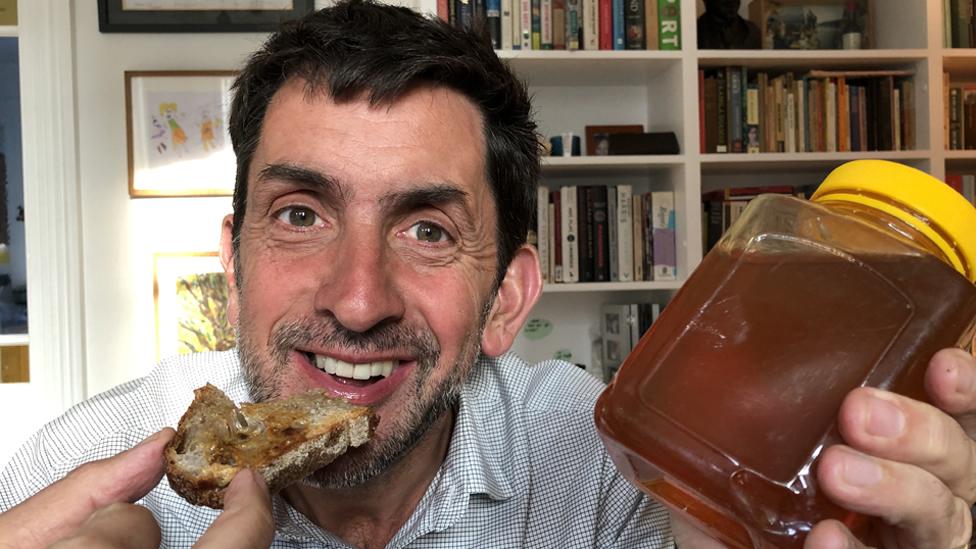
The landscape of northern Ethiopia has been transformed over the last three decades by a regreening project that has turned degraded land into forest. This has had a positive impact on water supplies, and on wildlife - including bees.
We're walking among the mature trees in the tree garden when they attack.
It is totally unexpected and extraordinarily frightening.
One moment I'm watching the sun filter down through the leaves, the next I am fleeing in blind terror.
We'd arrived at the arboretum about an hour earlier. I'd been looking forward to the visit.
The work here at Mekele University in Tigray province in the far north of Ethiopia is a small part of a huge and inspiring project - an effort to regreen some of the most degraded land in the world.
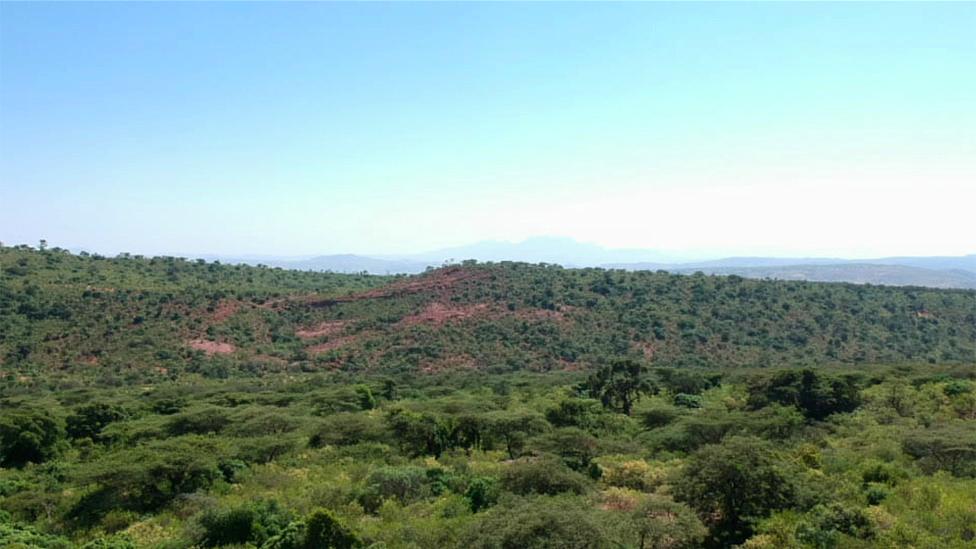
New forest in the foreground, more recent planting in the middle distance
So, I'll admit I was disappointed as Sarah Tewolde-Berhan, one of the forestry specialists behind the project, first led me down the overgrown path that leads to the garden. The gate is hanging loose on its hinges. It looks like it has been hit by a truck.
Sarah steps aside to let me go in first.
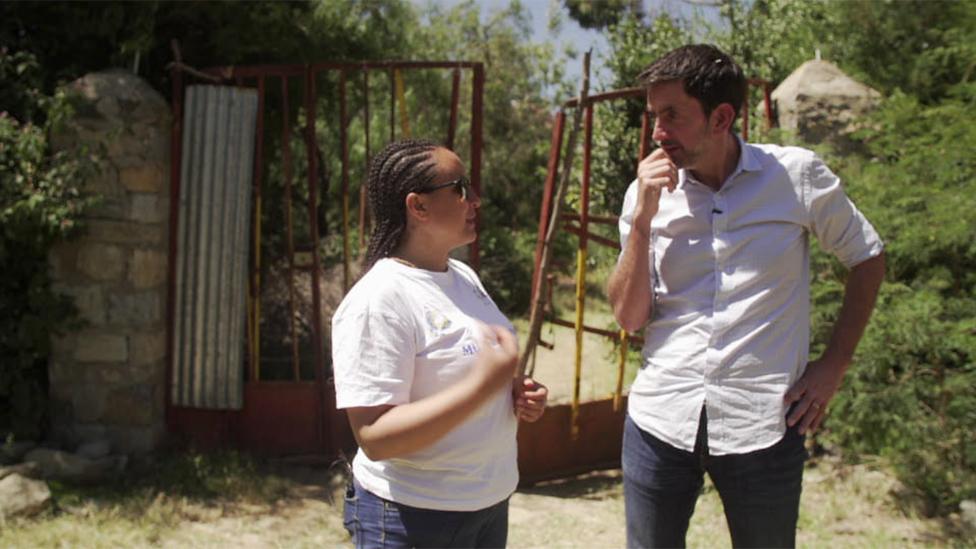
As soon as I pass into the garden the atmosphere changes; the chatter and clamour of the university is gone.
"This is where we plant the seedlings," Sarah tells me.
And there they are. Planted in neat rows in the trenches dug into the brown soil.
In the shade of a lean-to, a group of workers - men and women - are filling small bags with soil ready to take more baby trees.
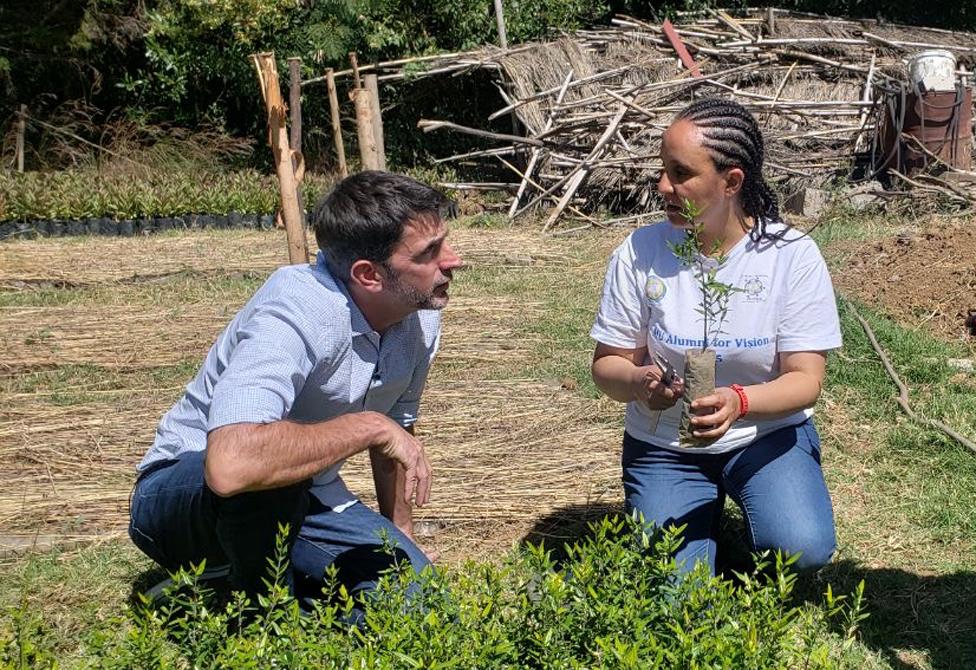
Birds sing. It is warm, lush and green - a world away from the images of Ethiopia I remember from my youth.
I was one of the millions of people who watched the news reports from here in northern Ethiopia back in the early 1980s.
BBC reporter Michael Buerk described the famine that killed more than a million people as "the closest thing to hell on Earth". He called it "biblical".
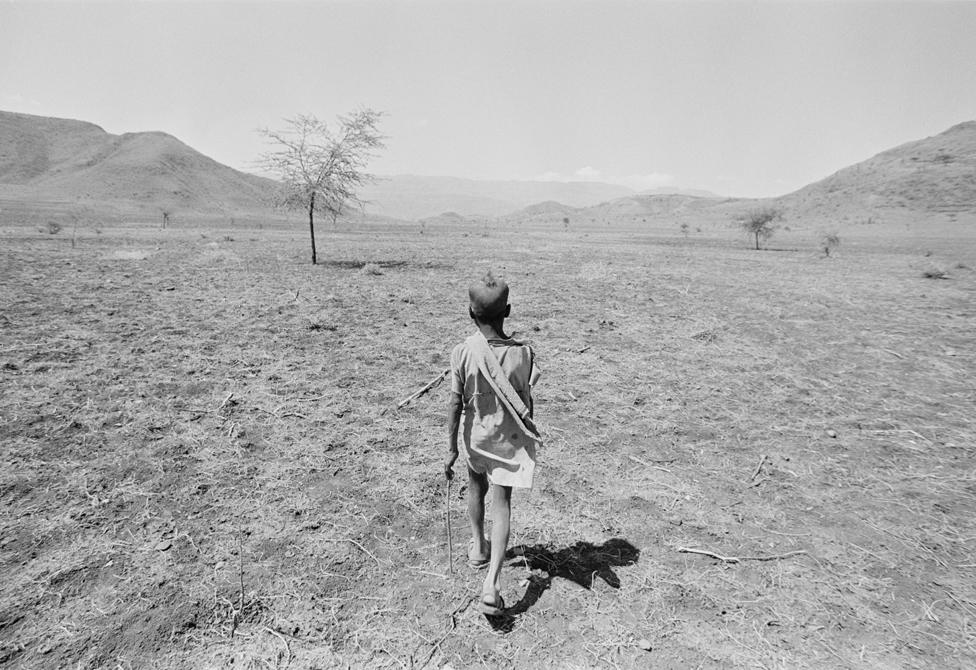
A boy in search of food during the 1984 famine
There were lots of reasons why that famine was so terrible - war, government neglect, human rights abuses - but one was deforestation.
Ethiopia has suffered some of the worst deforestation on Earth. And without trees there is little to protect the light soils of this hilly region from the sun, wind and intense bursts of rain.
But Sarah and her colleagues have found ways to restore woodland in even in the most unpromising areas.

Find out more
Climate Defenders profiles some of the people leading the battle against climate change and its effects - the series will appear on the BBC News website and on BBC World News over the next few weeks
Justin Rowlatt's report from Ethiopia can be heard on From Our Own Correspondent

I've seen the effect their efforts can have.
On the outskirts of Mekele I visit an area where the soil is so thin even weeds and grasses can't get a purchase. A scrawny-looking donkey noses among the rocks, seeking out the last scraps of nutrition.
It is a different story on the other side of the fence. Here tall grasses wave and there are shrubs and small trees. From a branch, a livid blue thrush fixes me with his scarlet-ringed eye.
"Nature has this tendency to heal itself," Sarah explains. "We just need to harness that."
Regreening isn't a new concept, she says, but the community needs to support the project by ensuring that grazing animals are kept out and no-one cuts trees and shrubs for firewood.
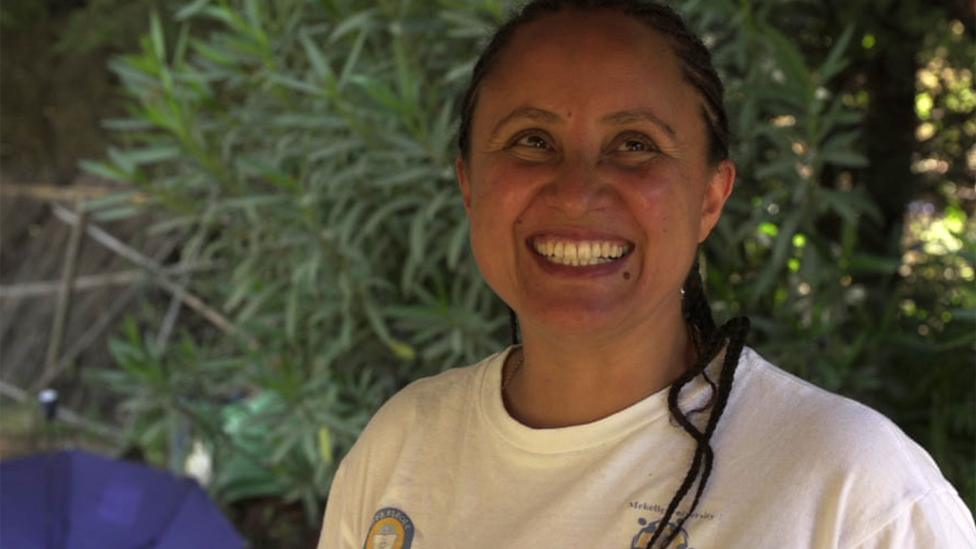
The collaboration has been so successful that they have been able to restore trees to 15,000 sq km of land in Tigray province alone.
In some places, springs that have been dry for decades have started to run again. Rivers flow for longer in the year. The productivity of nearby farms has increased.
Sarah's delight in the resilience of these ecosystems is obvious.
It is then that I spot the row of green hives in the shade of the trees.
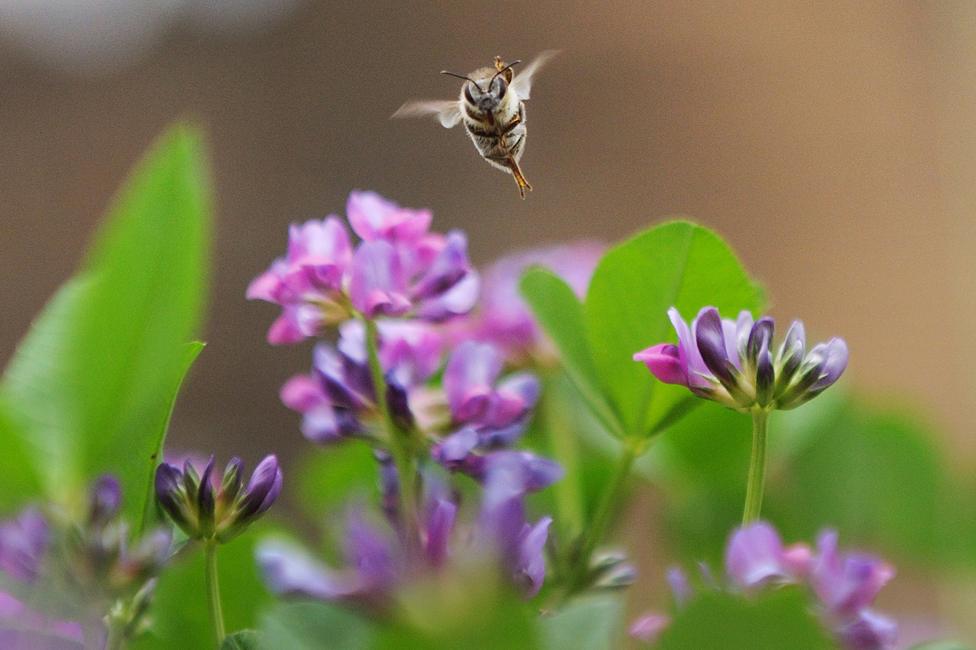
We walk over to get a closer look.
She warns me the bees do occasionally sting. I'm not worried, I say.
At that exact moment I feel a sour burning sensation on the fleshy part of my hand. I look down and see two barbs hanging out of my thumb. There are motes of blood at the point of each.
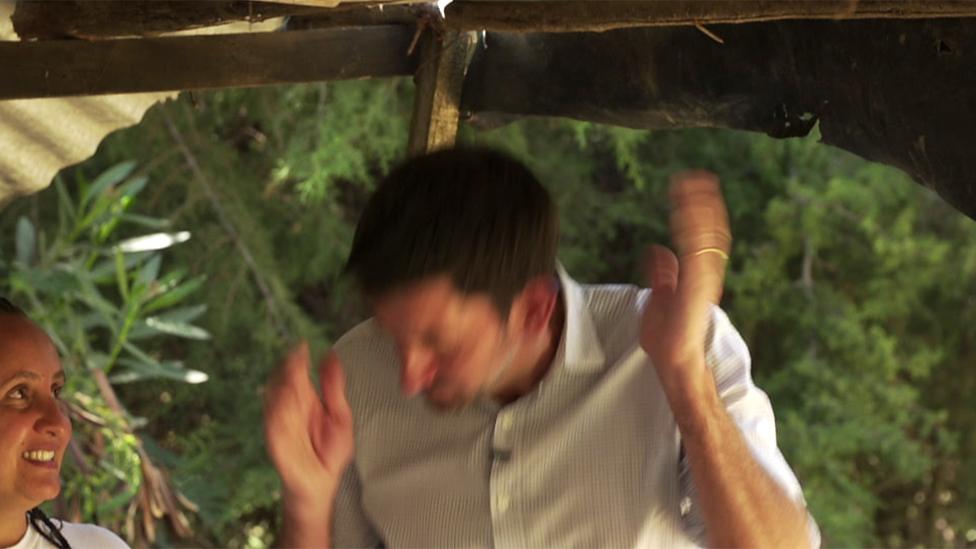
"Ouch!" I yelp. "They've stung me!"
Sarah turns and moves to pull the stingers out when suddenly she squeals. She's been stung too.
Then chaos descends. Suddenly, bees are swarming around in an angry chorus. They are buzzing in my ears, writhing in my hair. They are inside my shirt. They are everywhere at once.
We run blindly through the trees, trying to bat the bees away with our hands. I feel a sting on my ear, then my arm, then my hip.
I am amazed how disorientating it is, how overwhelming and terrifying.
I stumble after Sarah.
We run back into the nursery and into a potting shed.
She slams the door shut and we both pause.
No more buzzing. Phew!
We stand together in the cool gloom, just panting.
Then we laugh.
It was frightening - but exciting - and we've only been stung a few times.
"I'll tell you what," says Sarah, as we make our way back to her office. "My friend collects honey from those hives. Why don't I get you a jar?"
"Revenge honey?" I say. "That'd be great."
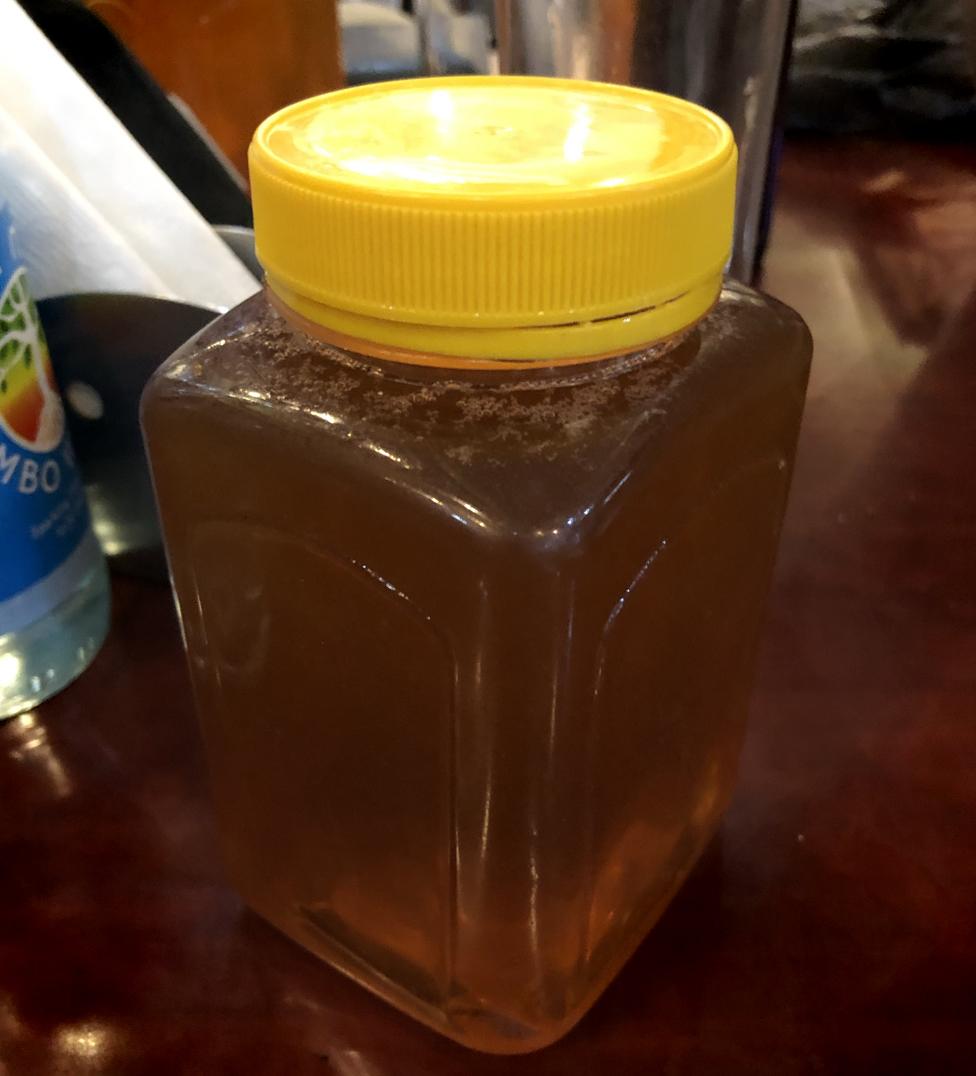
You may also be interested in:
Durwood Zaelke has arguably saved the world half a degree Celsius of warming